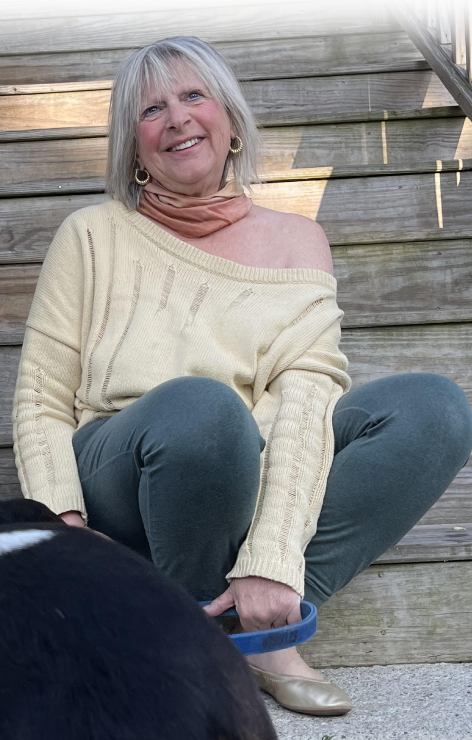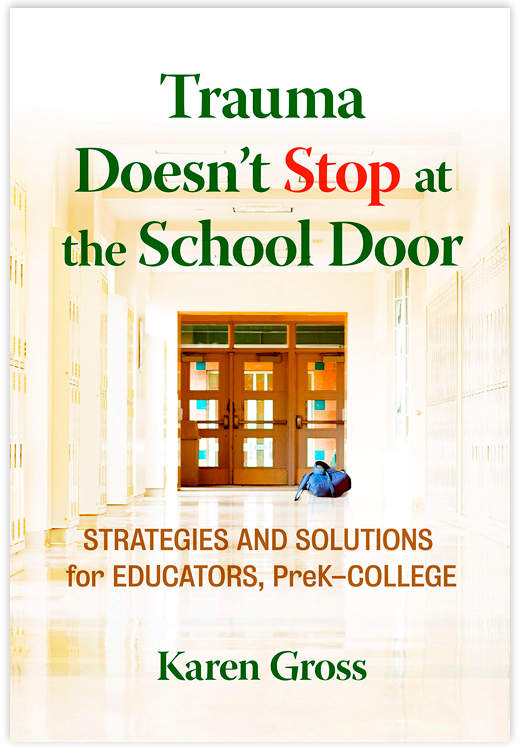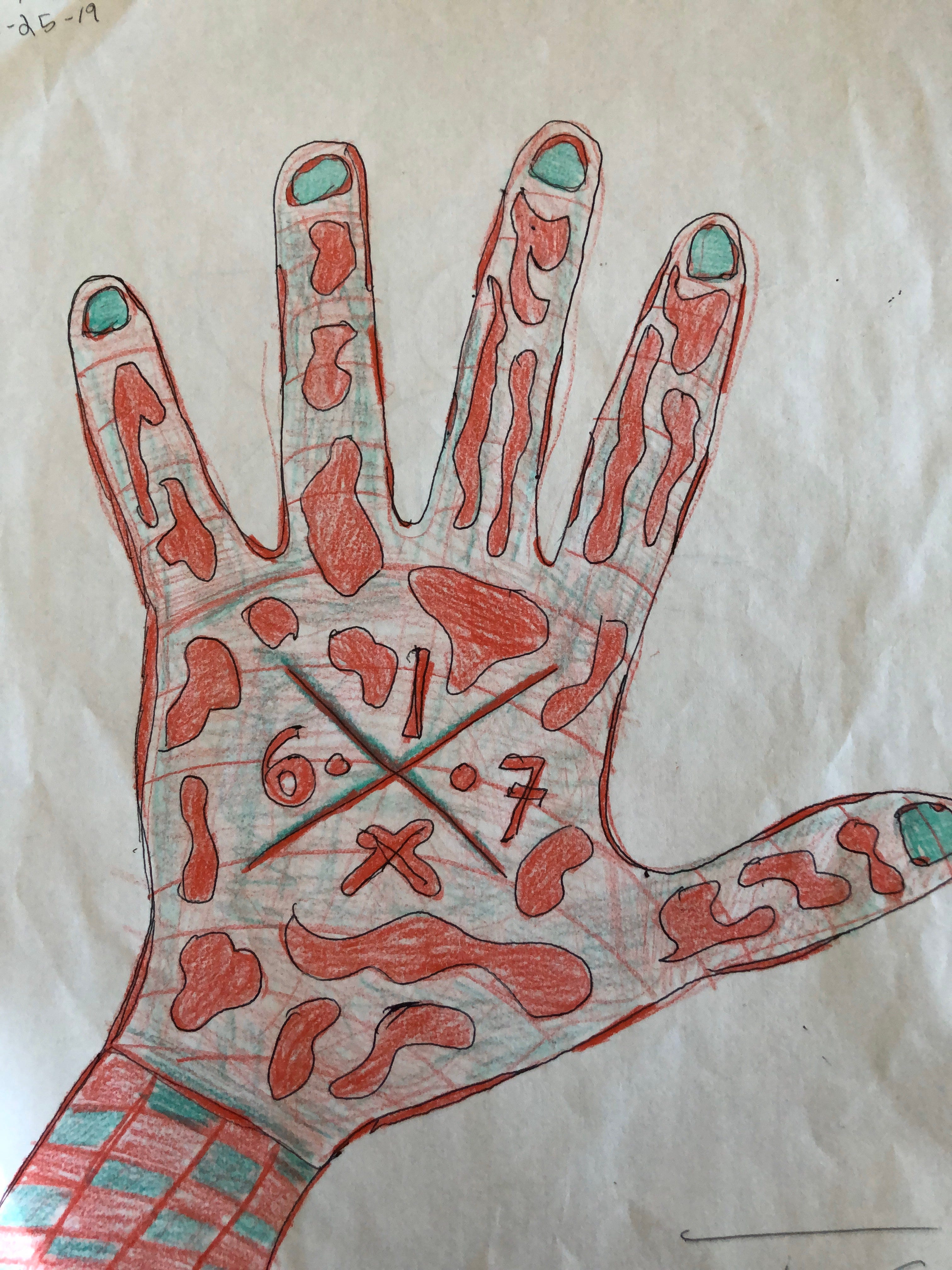Author
Educator
My work is focused on solutions to help students, educators and their institutions to thrive, not just survive.

My work is focused on solutions to help students, educators and their institutions to thrive, not just survive.


As an educator, I think the verdict in the Derek Chauvin trial provides teachable moments that should not be lost. They need to be discussed and processed with students (in many ways and on many levels) so that they can come to understand this moment in time in America and the possibility — the real possibility — that we are living in a time where history is being made.
Here are some of the teachable aspects:
The verdict sends a powerful (although still incomplete) message to children of all ages and at all stages that we still can place at least some trust in our judicial system, including the jury composed of our peers; the truth is hard to hide forever; not all law enforcement officers act badly and disregard human life; and we can have hope that our world and the treatment of those within it — especially those who are black and brown — can improve.
There is another important message: speaking up and out without violence and guns as individuals and as communities (whether in words or videoing or protesting) has power; it takes courage and can be hard but there are ears to hear and eyes to see and minds to change if we work to enable the bedrock of our nation: equality for all.

I have become increasingly worried about a too-large group of educational leaders (presidents; superintendents; chancellors; provosts) who are failing at their jobs and those failures can take many forms. In the interest of full disclosure, I was one of them. But with the benefit of now more than half a dozen years and a well-cleaned rearview mirror, I am seeing things that need remediation. And, a recent experience at a college pushed me to write something fast — before the harms grow exponentially.
The mistakes of educators come at a critical time in our history. In a time of the Pandemic, racial and ethnic, and gender tensions, and a disquieting political arena, our educational leaders need to be their very best. Their failures are hurting all our students. We need them to step up now more than ever.
To that end, I wanted to share a “do not” list. Many people might share a “to do” list but I was taken by a recent article addressing what NOT to say to those who have experienced trauma. Sometimes, if we eliminate the negatives, the positives can shine through. Call it winnowing out the bad. How Trying To Help Your Loved One Who’s Healing From Trauma Could Be Ruining Your Relationship With…When someone you love is going through something traumatic, the first thing you want to do is be there for them, and…jessibeyerinternational.com
Here are the top six items on my list. For leaders out there who are reading this, if the shoe fits, wear it. And yes, I will send this to at least one educator who needs to realize all six “do nots” apply to him, although he would surely not see that.
1. Today’s leaders should not make snap judgments about students (or anything else for that matter). There is a reason that lawyers rely on facts and spend time fact-gathering before a trial. One needs to know ALL the facts before one takes steps to resolve a situation. Educators are, sadly, prone to hear one side of a story, assume it to be true and gravely serious; then, often with unneeded speed, they act without getting more information. Big mistake. Here’s why: when people report to leaders, they do not always tell the full story; they may be angry; they may be venting; they may be mistaken but feel right. When I was a college president and students would report something horrible was done to them by a faculty or staff person, I sided immediately with the student. I would get outraged. Then, I would launch without hearing other sides of the incidents. Unfortunately, the student truth — heartfelt to be sure — was not the full story. It took a couple of such situations before I realized that it was way wiser to listen to the whole story because rushing headlong into a solution. It took restraint and a tad bit of time but it yielded vastly better outcomes.
2. We are in an era of leader turnover and many leaders are just starting out. That is, generally speaking, a good thing. But, if one is young as a leader (under 50), one needs to recognize that something valuable does come from decades of experience: wisdom. And, there is no shortcut to getting that wisdom. Acting as if one knows, acting without listening to the views of others, produces leaders doing what we often warn about: they reinvent the wheel and repeat history because they did not learn from it. Admitting that one does not know something is actually a sign of strength, not weakness. Acting tough and rigid and doctrinaire is the sign of a youthful leader who actually isn’t wise; those who are wiser have softer edges and less confrontational tones. They aren’t threatened. Many moons ago, when I was a professor and was asked questions in my first year or two of teaching, I often spoke faster on topics as to which I had less understanding; I just pushed through rather than acknowledging that the students were asking good questions upon which I needed to reflect. Reflection….that’s a needed thing many leaders fail to do enough.
3. Sadly, in the name of rightness and adherence to principle, too many leaders say “it is my way or the highway.” Now, that just isn’t right on many levels. Often, situations are nuanced. So are people. To suggest that those who do not agree with you are idiots or wrongheaded or stupid is not a pathway for cooperation and growth. I recently encountered a leader who said that those who did not share his views concerning systemic racism were idiots. Blockheads. I tried to point out that while I recognize the trauma of systemic racism (even though I speak as a white person), there were others who did not see this issue as the only or the central explanation of what accounts for current human behavior or disparate healthcare delivery. I shared with him an assigned article suggesting that reparations would have eliminated health disparities from the pandemic; I said it was controversial. “No, it isn’t controversial,” he replied. His view: Those who don’t believe that systemic racism accounts for deep healthcare inequities today are totally wrong headed. Gee, I said, I think many smart people have different views as to what accounts for human behavior. Students need to see that controversy, not ignore its existence. I cited the late Justice Scalia; I could have cited those with deep religious explanations for the state of our world. I don’t agree with them on central principles. But, calling people idiots isn’t a strategy.
4. Leaders can’t deflect criticism by saying things in the “we” form, as if to ignore the “I” embedded in the “We.” If a leader takes a stance, own it as one’s own. Don’t say “our office believes….” Seriously? An office doesn’t believe. People do. It is way easier to take positions and spread the “blame” or “result,” as if individual action was irrelevant. Here’s a tip. Leaders can share successes but they need to own controversial decisions. They need to take the blame for failures, whether or not they caused them. In other words, the “buck stops” because there is an “I” who must own institutional decisions. It is wimping out to do otherwise. It also models poorly to students, faculty and staff. And, by the by, don’t be rude either; it demeans the speaker.
5. Leaders today need to be nimble and flexible and open to needed changes in education and our society. To that end, leaders taking positions such as: “this is our way” or “this is how we do it” or “this is the tradition” are not helping their institution. Whatever successes one has had don’t go away but those same successes (or new successes of a different sort) may require different approaches on a go-forward basis. In education, to assume one “has the right formula” fails to recognize the changing context in which life (and education) are happening. Openness cannot be in words only; it needs to be reflected in deeds. Being “cutting edge” isn’t fixed; the edges are moving, like it or not.
6. Leaders need to do more self-reflection. Defensiveness is hard to detect in oneself. Overreaction is too. The need to act quickly because of a perceived crisis is often a knee-jerk response. The failure to pause, the failure to reflect, the failure to contextualize, the failure to acknowledge the knowledge and experience of others: these are all harmful to students, faculty and staff. Higher education is experiencing tough times; anyone who thinks that they have all the answers doesn’t. No one does for that matter. It is the absence of that recognition that dooms a leader. Ask questions and listen. That would go a long way. Expand the tent of those with whom one confers and trust many voices, not just the voices of the selected few (like favored students or staff).
I would welcome hearing from others — leaders included! Share positions or strategies to avoid. And, if we get those “do nots” out there in the conversation, we may find the “do’s” rising to the top. That would be a very good thing indeed. We need our leaders to be their best selves now more than ever. Getting rid of the “do nots” is a good step in the right direction.
When Amanda Gorman read her poem The Hill We Climb (or did Spoken Word in a sense) at the Inauguration of Joe Biden, a nation stopped and listened. Well, at least most people did. Poetry at an Inauguration is not something extraordinary (although this young poet is). I still remember Robert Frost reciting a poem at John F. Kennedy’s Inauguration.
But, when Amanda Gorman read a poem about the 3 honorary captains appearing and being celebrated at the Super Bowl, the reaction was very different. First, some people noted this was the first time there was poetry at the Super Bowl. Shocking seemed to be the attitude. I am not convinced of that statement as I think much of music is poetry that is sung or played. So, there has been poetry before — just not spoken. Some people were on high alert when the Super Bowl became a place for poetry; the manly sport was being invaded by the “poetic” touch. Some people thought it was the Super Bowl highlight. One title to an article emphasized that the poem was “original;” if a poet is reading her own work, is there a question about its authenticity?
I think, in these oh so trying times, that we need role models. We need people who can speak truth to power, who can express more ably than we can, how we feel. And, this is a youthful role model — not an old white man. And, this is a poet who speaks with her hands too — not just her voice. And, this is a woman of color and she commands our attention and pulls at our heart. She is like the National Anthem well sung; she represents the best in us and she wants to bring out the best in the rest of us.
For students, many of whom are learning online, her poetry presents remarkable teachable moments. And, as someone who specializes in trauma and its impact on education and psychosocial success, I hope we are using our Poet Laureate’s words and readings to help our students. Here are some suggestions:
1, Online learning requires good auditory skills, something many students lack. Suppose a teacher read 4 lines of one of Ms. Gorman’s poems and then asked students to recite it back to them. Most could not unless they were forewarned in advance to listen differently. Most of us can’t remember all that we hear, assuming we are listening at all. (Too many students are present but not engaged.) But, once students were read the passage again and told to try to remember some or all of it, they could focus on the alliteration and the pacing and perhaps remember more of the poem. That’s amazing learning with a powerful impact on ongoing listening and learning.
2. Ask students to read one of her poems and illustrate it. (Her book of poems is illustrated). Imagine how students would take up the opportunity to share what the poem meant in another medium. And, ask some students to set her poem to music — something that for many students would be a welcome change of pace in terms of educational assignments.
3. Have students look at the work of other poet laureates; that would be an amazing journey, one that I might take myself. The current poet laureate is Native American. Do you know her name? Do students know her name? Shouldn’t we all know her name? We know the name of the QBs at the Super Bowl. These might be names we could get to know, like we are know Amanda Gorman’s name. (Answer: Joy Harjo)
4. Have students write alliterative sentences. And, try tongue twisters too because alliteration is not always poetic; it can literally be mind-bendingly hard to say. Try: She had shoulder surgery. To be forthright, I wrote a book called Tongue Twisters and Beyond: Words at Play. (It is downloadable off my website at www.karengrosseducation.com under book header.) To be sure, what I wrote isn’t poetry but it is playing with words and making them dance for you. (Yes, I have published a book of poetry for children: Flying Umbrellas and Red Boats so poetry has special meaning for me.)
5. Enable students to listen to many poets reading their own words. There is power in that, just as there is power in student voices. Let students read their own words — a short paragraph they write about something that responds to a prompt given by a teacher. Those prompts can be creative and evocative. Imagine the sound of student voices. And, a teacher could read one of his/her own poems — math teachers too. Biology teachers too. Poetry is not limited to a class in “English.” How about poems written in a foreign language. Perhaps not Baudelaire which is a tad bit haughty but there are many Latin American and Spanish poets whose work is stellar. Lorca is my choice for students. There are other Spanish poets well worth our time and attention. And, Japanese and Korean poets. And Icelandic poets.
Here’s the point: Amanda Gorman’s entry onto American’s scene can be a catalyst for our students if we use her presence, her work, her role modeling, her words, well. To quote from her inaugural poem, “if only we are brave enough to see it; if only we are brave enough to be it.”
Last night, with simple but profound words and 400 candles, we honored the 400,000 plus Americans who died from the Pandemic. During the preceding months, we never honored those whom COVID attacked; we failed them — until now. And moving forward, our work is before us.
Continue reading “Democracy Prevails and Smith College Fails”I have been privileged over the years to get wonderful reviews of my adult and children’s books. (Yes, there were a few really nasty ones for a book released in 1997 — and there is one reviewer with whom I have simply agreed to disagree.) Reviews are often general and not personal to the reviewer (ie. devoid of personal reviewer stories). Some are short and some are longer; some are detailed and some reference specific sections of the books or note particular qualities (say the art in the children’s books).

I recently received a review of my newest adult book from Dr. Will Wootton. He is an author and educator and was the President of Sterling College in Vermont when I was the president of Southern Vermont College. He now consults with educational institutions.
Over the years since we both left office (on good terms with our institutions and each other), we have conversed about various issues in education. We have spoken about the challenges facing higher education, which are (sadly) plentiful. Also, I have read his excellent book on small colleges and overcoming their challenges.
It is in this context that I gave Will a copy of my most recent book, Trauma Doesn’t Stop at the School Door, released by Teachers College Press in June 2020. And it is, given the state of our educational and larger world, a book for our time.
Rather than saying any more about Will’s review, I provide it here. Other than minor edits for clarification and the like, it is presented here as written by Will. It is the kind of review that gives meaning to writing of a book in the first instance. Writing a book, as others may know or hypothesize, is a tough thing to do.
Reviews like this, particularly at times like this, give an author enormous sense of both pride and relief — and a pathway forward to continuing the work of writing, especially about a topic like trauma. And, perhaps, too, Will’s review will encourage others to read and use the book for the benefit of all our students and educators. If ever there were a time to be a trauma responsive institution, it is now.
Review by Will Wootton (italics added):
My single comprehensive impression, carried through the entire book, was how I wish I’d read something like this many, many years ago. I would have been a better high school teacher, a better teacher of dyslexic students (my specialty), and a more attentive college administrator. My ignorance of even the fundamentals of trauma was profound, based on nothing really other than a vaguely macho tolerance for disruption and unpredictability, and a defensive philosophy that nothing people do should surprise me.
Very effective to me were your personal stories of trauma, linking the clinical profiles and science to testimony. Which made me recall a minor but very clear demonstration of trauma in my own adult life: driving down an unfamiliar four lane city road, a car suddenly pulled directly in front of me and I hit it. No one was hurt. The other driver, a woman, was hysterical. I calmed her down. The front of my car was banged up, and the driver’s door crunched closed. Turned out she had seen a friend in the parking lot and just turned in without looking, meeting me. The police came. Everything was fine. I made my appointment; it was a fundraising trip.
However, hours later as I started driving back to Vermont I discovered I was reacting to every approaching car on every road without a central divider. I’d tense up, pull to the right, and once even stopped to catch my breath and berate myself thinking, this is ridiculous. This went on for weeks, and was very annoying. Eventually, it faded. But I had discovered I could not simply will away this obvious trauma. I could not dismiss it. But I could forget about it, until I read your book and recognized what had happened.
On a professional level, thinking back to the years your book would have been a genuinely applicable tool for me, I would have been considerably more aware not only of various levels of trauma among individual students, but within the faculty and staff as well. It would have added an important level of nuance and understanding to whatever insightfulness and empathy I managed to employ. I think of this most pointedly in recalling Sterling’s five military vets, the single Marine having served two deployments, both involving heavy combat. It’s a longer story, but as I read your book I realized things about him that I had not seen — could not have seen — before. He left the College eventually, but kept in some contact for a while.
This is a big book in a small box. You’ve taken a huge subject, potentially unwieldy, and rendered it sequential, detailed, authoritative, and by example and illustration borderline entertaining. I can’t see how it could be any better.
And I want to add for the generalist that this book has a broader application than schools and teachers. It’s helpful especially now within a pandemic, with a disruptive national government, an unsettled society, students at home, parents at home…to have some better understanding of the nuances, pervasiveness, and levels of trauma that affect everyday life and everyday people.
My thanks to Will and to all those who read this and see value in Trauma Doesn’t Stop at the School Door.

A recent article from the Christensen Institute stated overtly that choosing a college is like choosing a mattress. In short, the argument proffered in that both choices involve lack of information symmetry, are difficult to understand and present vocabulary that is impenetrable to the layperson. And, there are so many choices, we can’t actually choose well, a point made about the risks of abundant choice generally.
Continue reading “Why Choosing a College is NOT like Choosing a Mattress”
There have been a series of articles, including one in the Atlantic, suggesting that a new generation is on the horizon. Gen Z is being passed by a new generation, and the label ring ascribed to them is Generation Alpha. This happens when we define generations based on birth year.
I have another name for this new generation but before turning to that, I want to point out the generation naming is risky business.
We need to be cautious about homogenizing individuals, failing to recognize and acknowledge the myriad of difference within a generation — gender, ethnicity, race, culture, sociology-economic status, religion, home of origin among other variables. That said, the right definition — carefully crafted — has benefits in terms of more than marketing or political fodder; naming can be tied to framing — in all its meaning. In framing, we recognize and value and identify certain critical characteristics.
Continue reading “The Next Generation is Being Named: Try Generation T instead of Gen Alpha or Beta”In this time of a pandemic and uncertainty of every sort and in every corner of our existence, we need to determine risk at the global, national, regional, local and personal levels. I want to focus here on personal risk taking. And, I can state my conclusions up front: people are very different in calculating and acting with respect to risk and even when some folks seem over-cautious and others too cavalier, we need to recognize that in time of great stress and abundant things out of our personal control, folks will react differently; and, we need to be considerably more tolerate than we might otherwise be of people’s behaviors, most especially those who live with us. In other words, don’t push people to do what you do, to buy what you buy to protect yourself and to travel/shop/stay in as you do.
Continue reading “Our Approach to Risk Differs Dramatically — Even Within one Family”I am deeply concerned that we are not asking the right questions as we move to reopen schools across the educational pipeline. I have always believed, reified by the amazing book by James Ryan, Wait What?, that asking good questions is critical to the ability to think through problems. Quality questions often get at the soft spots in plans and strategies and arguments. Sometimes, they show that the Emperor really is not wearing clothes. They force thinking in new directions. They are framed as questions but in a sense, they are guides.
How one asks questions matters of course. The idea is not to be hostile and make the questions into accusations. The point is actually to probe for and listen to and hear answers but more than answers, the point is to see if the question-recipient has thought about the issues posed. The absence of a question being considered is an answer too.
Continue reading “The Questions We Need to Be Asking for Schools/Colleges that are Reopening: Are We Asking Them?”When we struggle and can’t find the perfect words to express our feelings, we oft-times turn to well worn aphorisms (defined generally as short statements of a general truth or statements that provide insight or quality advice). The trouble is that some of these common aphorisms aren’t true and yet we utter them as truisms. And we keep repeating them as if saying them more confers more heft to them.
In reality, some aphorisms are downright wrong and harmful. (True, some are apt and accurate.) Some have taken on a political connotation, messaging vastly more than what one might suspect at first blush. Add to this that there are existing common aphorisms that contradict each other, leading one to believe that both can’t be true or can they?
For the record, I am not the first and surely will not be the last to question the meaning of what we say repeatedly that lacks meaning and actually promotes falsehoods.
https://www.independent.co.uk/voices/top-10-untrue-sayings-aphorisms-a8790516.html
Continue reading “We Use Aphorisms in Times of Trouble: Time for Caution”